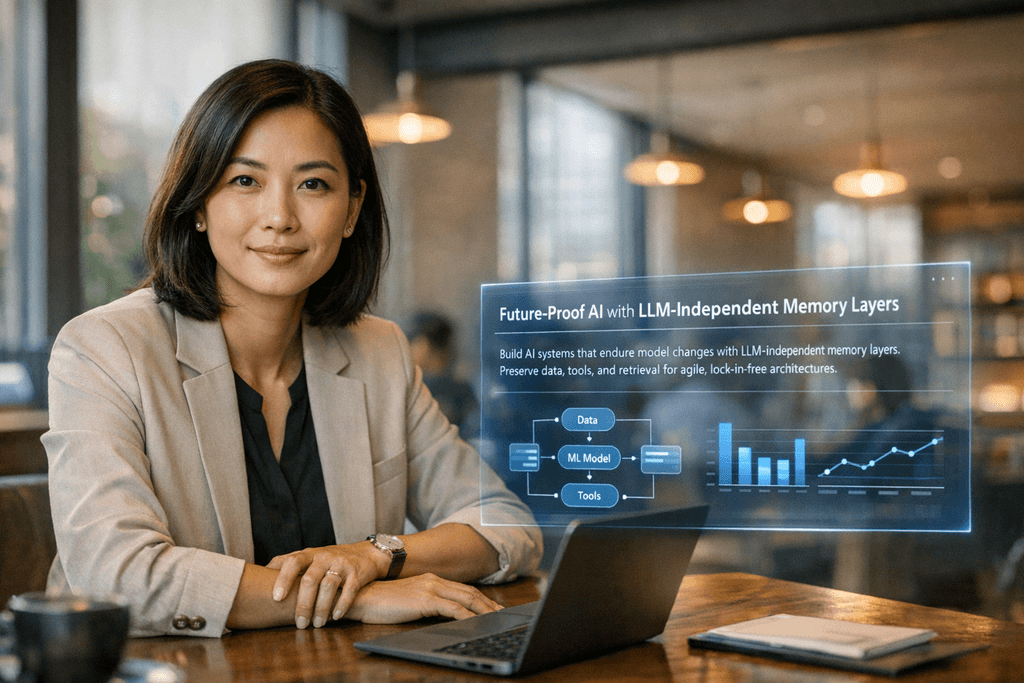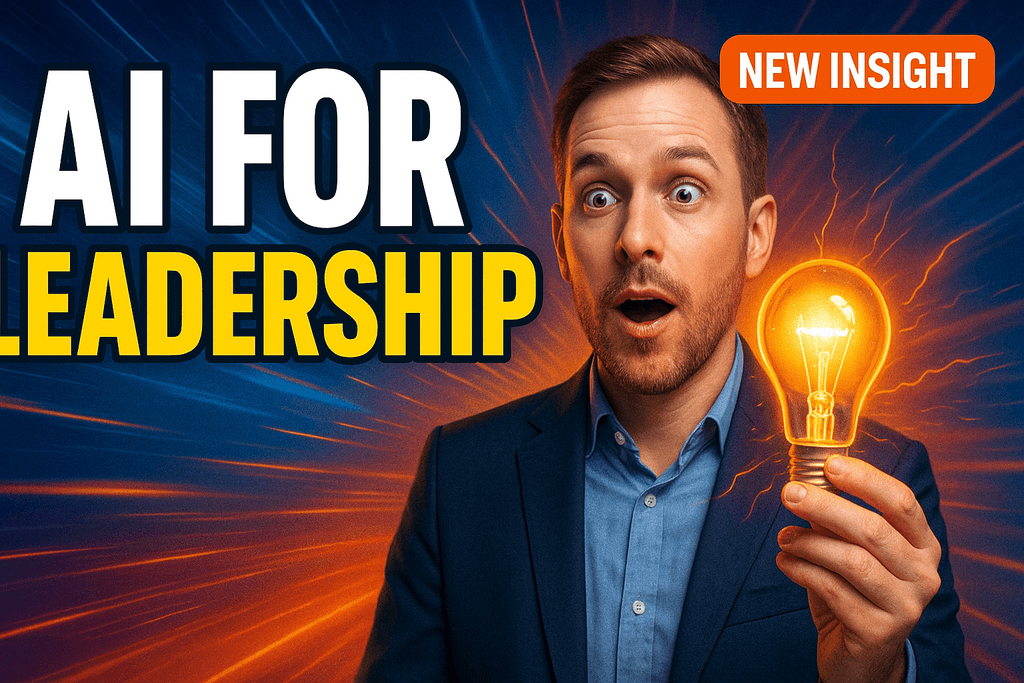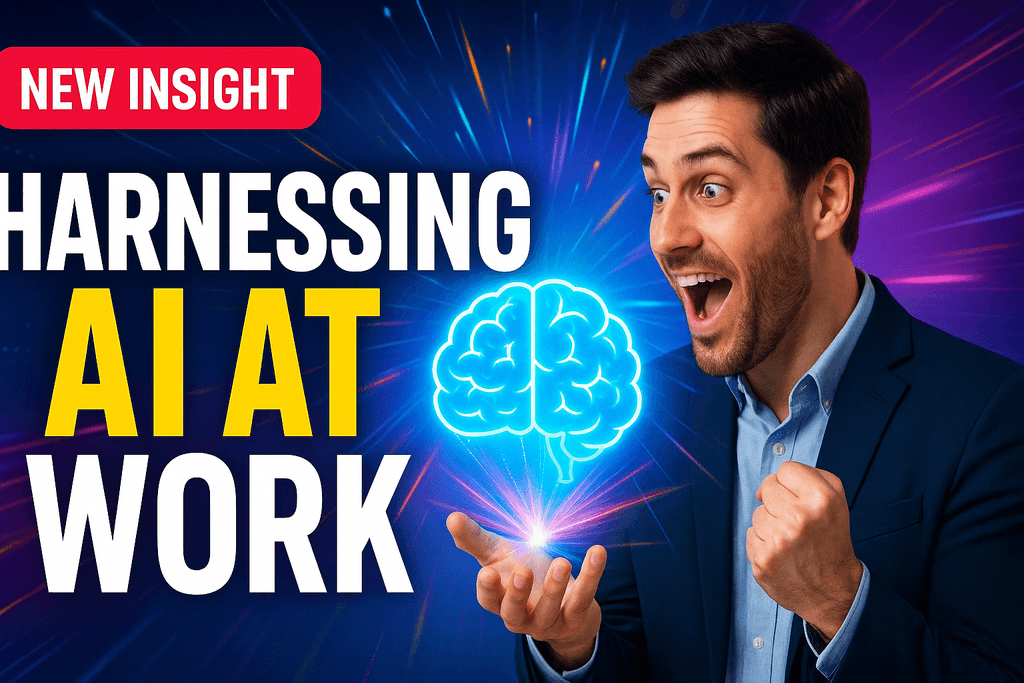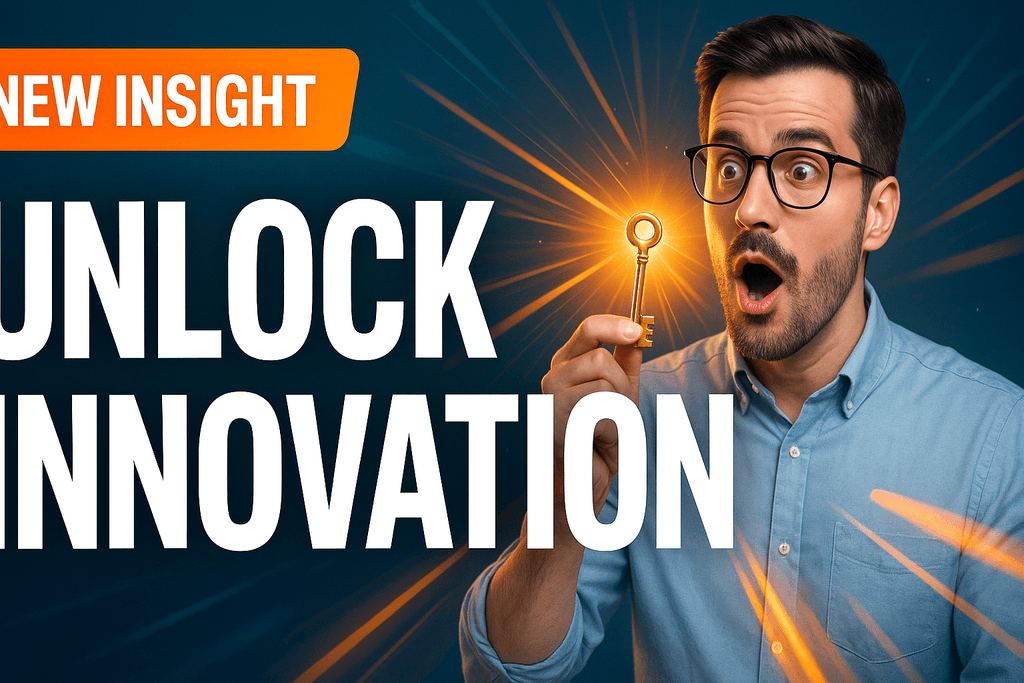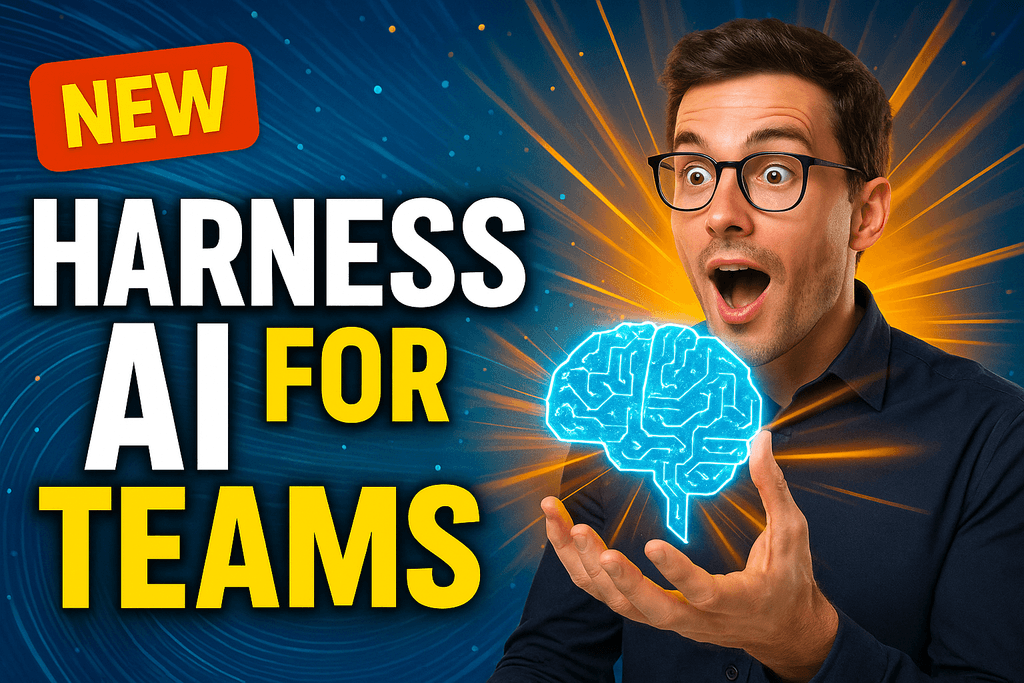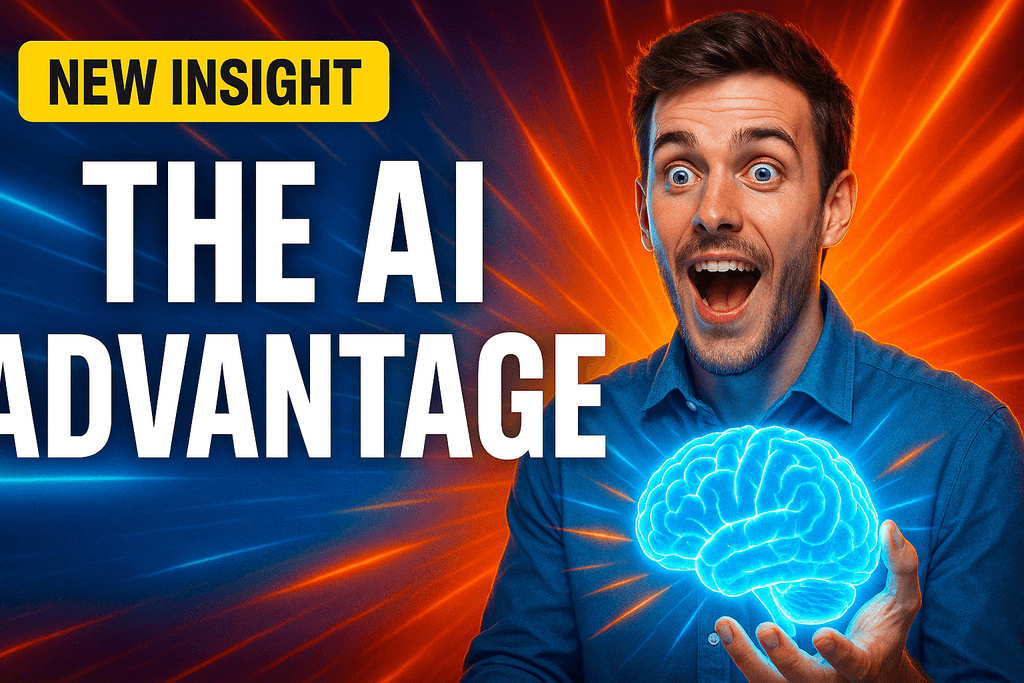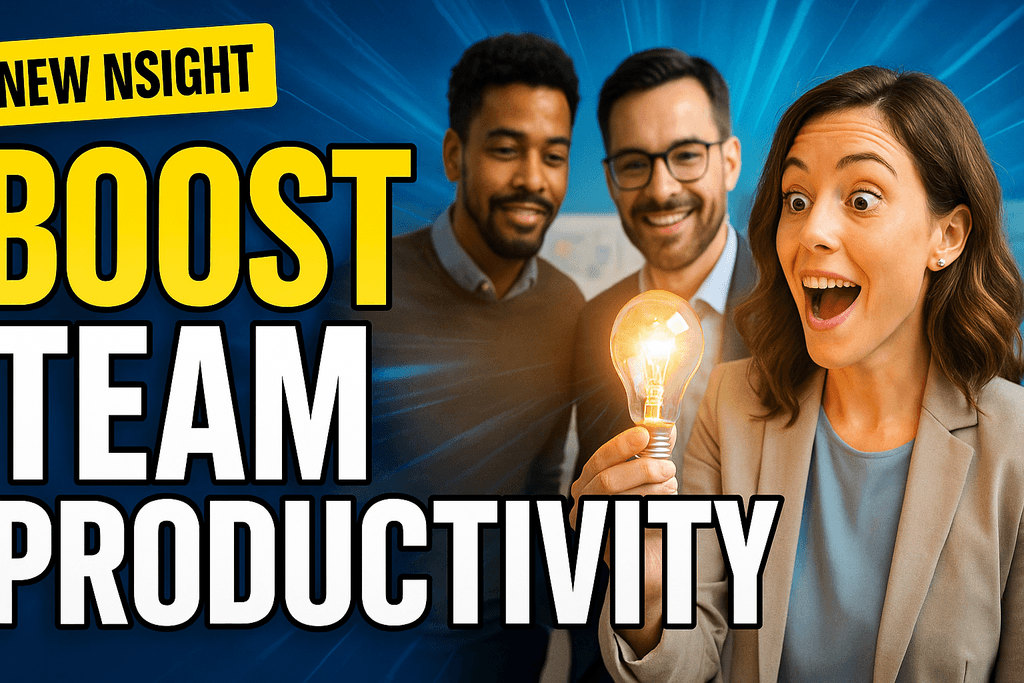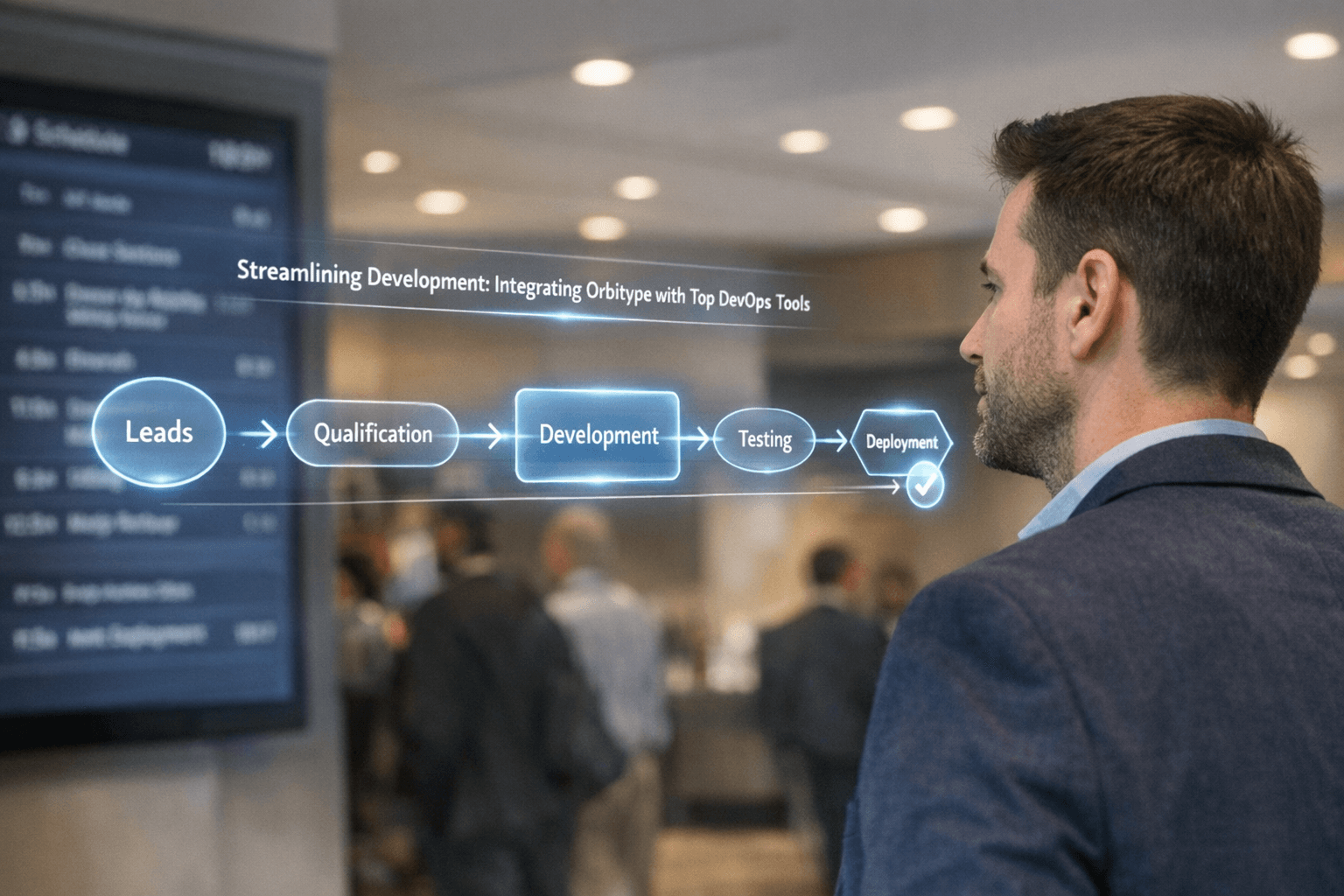
Table of Contents
Understanding Orbitype as Agentic Cloud OS
Before diving into the integrations, let's understand how Orbitype functions as an Agentic Cloud OS. Unlike traditional headless CMS platforms, Orbitype combines PostgreSQL databases with cloud storage (S3), compute resources, and intelligent AI agents that have access to all data and processes. This API-first approach allows for seamless integration with various front-end frameworks and DevOps tools.
The platform's AI agents act as autonomous digital workers, capable of analyzing patterns, optimizing workflows, and making intelligent decisions across your entire development stack. These agents can monitor deployment pipelines, predict potential issues, and automatically adjust configurations to maintain optimal performance.
For a deeper look at how Orbitype's composable architecture streamlines content management, explore our guide on The Future of Content Management.
DevOps practices combine software development (Dev) and IT operations (Ops) to shorten the system development life cycle and deliver high-quality software continuously. By integrating Orbitype's agentic capabilities with DevOps tools, you can automate workflows, ensure consistency across environments, and create intelligent, self-optimizing deployment pipelines.
AI-Enhanced Jenkins Integration
Introduction to Jenkins with AI Workforce
Jenkins is an open-source automation server that helps automate the parts of software development related to building, testing, and deploying, facilitating continuous integration and continuous delivery (CI/CD). When combined with Orbitype's AI agents, Jenkins transforms into an intelligent automation platform capable of predictive maintenance and autonomous optimization.
Setting Up Jenkins with Orbitype AI Agents
To set up Jenkins, begin by downloading and installing it from the official Jenkins website. Follow the installation instructions specific to your operating system. Once installed, launch Jenkins and complete the initial setup wizard, installing the recommended plugins during the process. The integration with Orbitype's AI workforce adds intelligent monitoring and optimization capabilities.
Orbitype and Jenkins Integration with Workflow Automation
With Jenkins up and running, integrating it with Orbitype involves leveraging AI agents for enhanced automation. First, ensure Orbitype is configured properly with API access. Next, create a Jenkins pipeline project that includes AI-powered steps for interacting with Orbitype, automating builds, and deployments. The AI agents can analyze build patterns, predict failures, and automatically adjust pipeline configurations. This automation ensures continuous integration and delivery, enabling you to streamline your development process significantly while reducing manual intervention through intelligent decision-making.
Smart Docker Integration with AI Orchestration
Introduction to Docker with AI Workforce
Docker is a platform that enables developers to create, deploy, and run applications in containers. Containers are lightweight, portable, and ensure consistency across various environments. Orbitype's AI agents enhance Docker workflows by providing intelligent container management, resource optimization, and predictive scaling based on usage patterns.
Setting Up Docker with Orbitype AI Monitoring
Start by downloading and installing Docker from the official Docker website, following the installation instructions for your operating system. Familiarize yourself with basic Docker commands such as docker run, docker build, and docker-compose. Orbitype's AI agents can monitor container performance and automatically suggest optimizations for better resource utilization.
Orbitype and Docker Integration with Intelligent Automation
Integrating Orbitype with Docker involves containerizing Orbitype with AI-enhanced monitoring. This process starts with creating a Dockerfile to define the Orbitype environment, enhanced with AI agent configurations. Once the Dockerfile is ready, build a Docker image and run the container with AI monitoring enabled. Docker Compose can manage multiple containers and define services, while AI agents ensure that Orbitype runs consistently across different environments, automatically adjusting resource allocation and detecting potential issues before they impact performance.
Kubernetes Orchestration with Autonomous AI Agents
Introduction to Kubernetes with AI Workforce
Kubernetes is an open-source container orchestration platform that automates the deployment, scaling, and management of containerized applications. It is designed to manage complex applications efficiently. Orbitype's AI agents transform Kubernetes into an intelligent orchestration system capable of autonomous scaling, predictive maintenance, and self-healing deployments.
Setting Up Kubernetes with AI Agent Integration
Install Kubernetes using tools like Minikube for local development or opt for a managed Kubernetes service for production. Familiarize yourself with basic Kubernetes commands such as kubectl apply, kubectl get, and kubectl describe. Orbitype's AI agents can be deployed as specialized pods that monitor cluster health and optimize resource allocation automatically.
Orbitype and Kubernetes Integration with Intelligent Scaling
Deploying Orbitype on Kubernetes starts with creating Kubernetes deployment and service configuration files enhanced with AI agent specifications. Apply these configurations using kubectl apply, ensuring Orbitype is deployed, managed, and scaled efficiently with AI oversight. The AI agents define services to expose Orbitype pods to external traffic and use intelligent algorithms to predict load patterns and scale resources proactively. This container orchestration platform that automates deployment processes while maintaining optimal performance through continuous monitoring and adjustment.
AI-Powered DevOps Best Practices
Efficient Integration with AI Workforce
For efficient integration, leverage Orbitype's AI agents to manage configurations through intelligent environment variable handling and automate repetitive tasks using AI-driven scripts and pipeline configurations. This approach simplifies the integration process and reduces manual intervention through autonomous decision-making. The AI workforce can analyze patterns across deployments and suggest optimizations for better performance and resource utilization.
To further streamline team collaboration during these processes, explore how Orbitype's workflow automation enhances software project collaboration in our guide on Automating Content Workflows with Orbitype's Custom Solutions.
Common Challenges and AI-Driven Solutions
Integrating Orbitype with DevOps tools may present challenges, such as network configurations and secret management. Orbitype's AI agents provide intelligent solutions by automatically detecting network issues and suggesting optimal configurations. Handle secrets securely using AI-enhanced tools like Kubernetes Secrets or Jenkins Credentials, where AI agents monitor access patterns and detect potential security threats in real-time.
Maintaining and Monitoring Integration with Autonomous Agents
Maintaining and monitoring the integration is crucial for long-term success. Orbitype's AI agents continuously track the health and performance of the integration, providing predictive insights and automated remediation. The agents regularly update dependencies and configurations to stay current with best practices and ensure optimal performance through intelligent analysis of system metrics and usage patterns.
Real-World Implementation Examples
E-Commerce Platform with AI-Driven Scaling
Consider a high-traffic e-commerce platform built with Orbitype's agentic cloud OS. The AI agents monitor user behavior patterns and automatically scale Docker containers during peak shopping periods. Jenkins pipelines are enhanced with predictive analytics that anticipate deployment needs based on seasonal trends, while Kubernetes clusters self-optimize resource allocation to handle traffic spikes without manual intervention.
SaaS Application with Intelligent Monitoring
A SaaS application leveraging Orbitype's AI workforce demonstrates autonomous incident response. When the AI agents detect anomalies in application performance, they automatically trigger Jenkins builds for hotfixes, orchestrate Docker container updates, and coordinate Kubernetes rolling deployments. This intelligent automation reduces downtime from hours to minutes while maintaining service quality.
Development Agency Workflow Optimization
A software development agency uses Orbitype's AI agents to optimize their entire DevOps pipeline. The agents analyze code commit patterns, predict build failures, and automatically adjust CI/CD configurations. They coordinate between Jenkins for automation, Docker for consistent environments, and Kubernetes for scalable deployments, creating a seamless workflow that adapts to project requirements and team productivity patterns.
Future of AI-Driven DevOps
Emerging Trends in Agentic Automation
The future of DevOps lies in agentic automation, where AI agents become integral team members rather than just tools. Orbitype's vision includes AI agents that can understand business context, make strategic decisions, and collaborate with human developers in natural language. These agents will predict market demands, automatically adjust infrastructure, and optimize costs based on usage patterns and business objectives.
Self-Healing Infrastructure
Advanced AI agents will create truly self-healing infrastructure that goes beyond simple restart mechanisms. They will analyze root causes, implement permanent fixes, and learn from each incident to prevent similar issues. This evolution transforms traditional reactive maintenance into proactive system optimization, where problems are solved before they impact users.
Intelligent Resource Optimization
Future AI agents will optimize resource allocation across multiple cloud providers, automatically negotiate better pricing, and predict capacity needs months in advance. They will understand the relationship between code changes, infrastructure requirements, and business outcomes, making intelligent decisions that balance performance, cost, and reliability without human intervention.
Conclusion: Embracing the Agentic Future
Integrating Orbitype's agentic cloud OS with popular DevOps tools like Jenkins, Docker, and Kubernetes creates a transformative development ecosystem. The combination of traditional DevOps practices with AI agents enables unprecedented levels of automation, intelligence, and efficiency. By following the steps outlined in this guide, you can automate workflows, ensure consistency across environments, and create self-optimizing deployment pipelines that adapt to changing requirements.
The AI workforce embedded within Orbitype doesn't just execute commands—it thinks, learns, and evolves with your development processes. This intelligent automation reduces manual overhead, predicts and prevents issues, and continuously optimizes performance based on real-world usage patterns. Teams can focus on innovation and strategic development while AI agents handle routine operations and maintenance tasks.
As we move toward an increasingly automated future, embracing agentic cloud platforms like Orbitype positions your organization at the forefront of technological advancement. The integration of AI agents with DevOps tools represents more than just process improvement—it's a fundamental shift toward intelligent, autonomous development environments that can streamline your development and deployment processes while maintaining the highest standards of reliability and performance.








